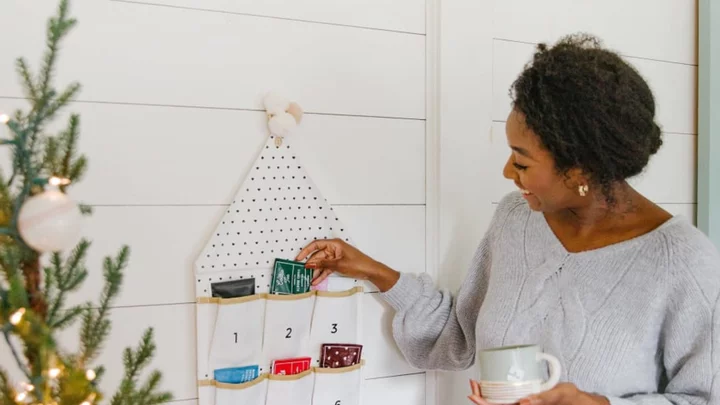
“I Want It That Way”: How Max Martin’s ‘Melodic Math’ Led to This Enduring (and Confusing) Backstreet Boys Hit
The Backstreet Boys’ 1999 smash “I Want It That Way,” which celebrates its 25th anniversary in April 2024, is among the definitive songs—if not the definitive song—of the ’90s teen-pop explosion.
2023-10-21 01:22

Spain's PLD Space expects first orbital launch in Q1 2026 from French Guiana
MADRID Spanish rocket company PLD Space plans a first orbital launch from French Guiana in the first quarter
2023-10-20 20:16

'The release date was really tough': Justin Simien feels Barbenheimer overshadowed Haunted Mansion
Justin Simien felt that 'Haunted Mansion' disappointed at the box office as it was released in the aftermath of 'Barbenheimer'.
2023-10-20 17:45

Richard Curtis has written a short sequel to Notting Hill
Richard Curtis has revealed that he wrote a 10-minute sequel to 'Notting Hill' that featured Julia Roberts and Hugh Grant's characters splitting up.
2023-10-20 17:26

Matthew Vaughn wants to remake Star Wars for new generation
Matthew Vaughn would love to reboot 'Star Wars' for a new generation of fans.
2023-10-20 15:27

Deadpool 3 delayed from May 2024
'Deadpool 3' is halfway done and unlikely to make its pencilled-in release date next May.
2023-10-20 15:21

Hitting snooze button can actually benefit brain sometimes, study suggests
Hitting the snooze button on the alarm clock once in a while might actually support the brain’s process of waking from deep sleep, according to a new study. People sometimes want to go right back to sleep even after the alarm goes off in the morning, using the snooze button in clocks and cell phones. Decades of previous research suggested that hitting snooze can have negative effects, both on sleep and the brain’s ability to wake up, but until now there hasn’t been any direct evidence of this, say scientists. The new study, published in the Journal of Sleep Research, assessed how common snoozing is and what effects this behaviour has on sleep, sleepiness, mood, and the brain’s cognitive abilities. Researchers found that those who snooze on an average sleep slightly shorter and feel more drowsy in the morning compared to those who never snooze. But they also saw that there were no negative effects of snoozing on the release of the stress hormone cortisol, mood, or sleep quality throughout the night. In the study, 1732 individuals answered questions about their morning habits, including how often they hit the snooze button with many – especially young adults – reporting that they use the alarm feature regularly. The most common reason for snoozing, according to participants, is feeling too tired to get out of bed when the alarm goes off. In another small follow-up experiment, 31 regular snoozers spent two nights in a sleep lab in order to measure their sleep in more detail. On one of the mornings, they were allowed to snooze for 30 minutes, and on the other, they had to get up right when the alarm went off. While in the first case, participants’ sleep was disturbed during the half hour of snoozing, most of them still got more than 20 minutes of sleep – meaning that their total night’s sleep was not affected much. In the snooze condition, no one had to wake up suddenly from deep sleep, and the snoozers performed a bit better on cognitive tests right upon waking. There were also no clear effects of snoozing on mood, sleepiness, or the amount of cortisol in the saliva. The results hint that half an hour of snoozing may not have negative effects on night sleep and could have some positive effects like a decreased likelihood of waking from deep sleep. However, researchers caution that the second experiment was small and only included people who are regular snoozers who find it easy to go back to sleep after each alarm. They say snoozing is most likely not for everyone. Jennifer Kanaan from the University of Connecticut in the US, who is another sleep scientist unrelated to the study, said the latest findings should be interpreted with caution as it could send the wrong message to people. “If you’re coming in and out of sleep for 30 minutes, after the alarm goes off the first time, you’re costing yourself 30 minutes of uninterrupted, quality, restorative sleep,” Dr Kanaan said in a statement. Instead of trying to figure out how to manipulate our alarm clocks, she says people should make a consistent good night’s sleep a greater priority and be less reliant on snooze buttons. “Simply put, instead of hitting the snooze button they should get more sleep,” Dr Kanaan said. Read More Study reveals why millions of women wake up at 3.29am Consistent lack of sleep may increase risk of future depressive symptoms – study Breakthrough study allows scientists to communicate with people as they sleep How to support a child with a stammer ‘I lost nearly a stone on Ozempic, but now it’s run out what am I to do?’ Miriam Margolyes now has part of a cow’s heart as she opens up about health
2023-10-20 14:20

Factbox-Corporate America weighs risks of the Ozempic effect
U.S. companies across sectors such as food and beverage makers and manufacturers of glucose monitors have faced investor
2023-10-20 10:58

Japan gives $80 million subsidy to moon exploration startup ispace
TOKYO Japan will provide a 12 billion yen ($80 million) subsidy for moon exploration startup ispace, industry minister
2023-10-20 10:47

Merck signs $5.5 billion deal with Daiichi for cancer therapy development
TOKYO (Reuters) -Japan's Daiichi Sankyo announced on Friday a $5.5 billion agreement with Merck to jointly develop its three precision
2023-10-20 09:23

Sorry, Barbie! Actors Guild Releases Guidelines for Striking Members’ Halloween Costumes
The SAG-AFTRA actors’ strike has rules about how to celebrate Halloween this year.
2023-10-20 04:55

This Advent Calendar Is Perfect for Tea Lovers
Count down to Christmas the best way possible: by brewing delicious tea.
2023-10-20 03:27
